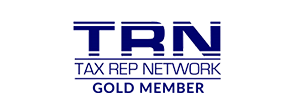California Tax Relief: Resolve FTB, EDD & CDTFA Issues with Boulanger CPA

- Franchise Tax Board (FTB): Oversees personal and corporate income tax compliance and collections, often issuing aggressive enforcement actions for unpaid tax liabilities.
- Employment Development Department (EDD): Regulates and collects payroll and employment taxes, frequently auditing businesses for worker classification and payroll tax compliance.
- California Department of Tax and Fee Administration (CDTFA): Manages sales and use tax, as well as a range of special taxes and fees, and conducts detailed audits that can lead to significant financial liabilities.
- Installment Agreements (Payment Plans) – Structured payments over time to resolve outstanding liabilities.
- Offer in Compromise – A potential reduction in the total tax liability owed for qualifying taxpayers.
- Currently Not Collectible (CNC) Status – Temporary relief from enforced collections due to financial hardship.
- Penalty Abatement – Reduction or removal of penalties under qualifying circumstances.
- Innocent Spouse Relief – Protection for spouses unfairly burdened by a partner’s tax liabilities.
- Tax Liens – A legal claim against your property, including real estate, vehicles, or other assets, to secure the unpaid tax debt. Tax liens can severely impact credit scores and hinder the ability to obtain financing or sell property.
- Orders to Withhold (OTW) – Direct seizures of funds from bank accounts, wages, rental income, or other financial sources. The FTB can issue these without prior warning, leaving taxpayers in a difficult financial position.
- Continuous Orders to Withhold (COTW) – Unlike a one-time OTW, these orders allow the FTB to continuously seize funds from recurring payments such as wages, commissions, and contract payments until the debt is satisfied.
- Earnings Withholding Orders for Taxes (EWOT) – Mandatory wage garnishments sent to an employer, requiring them to withhold up to 25% of an employee’s wages to satisfy tax liabilities. This can create severe financial hardship for taxpayers.
- Levies on Business and Personal Assets – The FTB has the authority to seize personal and business assets, including equipment, accounts receivable, and physical property, to cover outstanding tax debts.
- Driver’s License and Professional License Suspensions – The FTB collaborates with state licensing agencies to suspend or revoke driver’s licenses and professional licenses, making it difficult for individuals to continue working in their professions.
- Offset of State and Federal Refunds – The FTB can intercept state and federal tax refunds to apply toward unpaid tax liabilities.
- Protest the Assessment – File a written appeal to dispute the FTB’s findings.
- Office of Tax Appeals (OTA) – Pursue further appeals beyond the FTB’s internal review process.
- Bankruptcy Considerations – Under specific conditions, tax debts may be discharged in bankruptcy proceedings.
- Voluntary Disclosure Program – Potential penalty relief for qualifying taxpayers who voluntarily come forward to resolve unpaid tax liabilities.
- Comprehensive tax liability analysis and resolution planning.
- Negotiation with the FTB, EDD, and CDTFA on behalf of clients.
- Representation in tax audits, appeals, and collections.
- Implementation of strategies to minimize penalties, interest, and collection actions.
Frequently Asked Questions
What should I do if I receive a tax lien from the FTB?
If you receive an FTB tax lien, it is crucial to take immediate action. A lien can impact your credit score and ability to obtain loans or sell property. Contact Boulanger CPA and Consulting PC to explore options such as lien withdrawal, release, or settlement through an Offer in Compromise.
How does the FTB issue wage garnishments, and can they be stopped?
The FTB can issue an Earnings Withholding Order for Taxes (EWOT), requiring your employer to deduct up to 25% of your wages. This garnishment can be stopped or reduced through installment agreements, financial hardship claims, or other tax resolution strategies. Our team can negotiate on your behalf to help prevent or mitigate garnishments.
What are my options if I can’t afford to pay my California tax debt?
Taxpayers facing financial hardship may qualify for:
Installment agreements (payment plans)
Offer in Compromise (settling for less than owed)
Currently Not Collectible (CNC) status (temporary collection relief)
Penalty abatement (reduction or elimination of penalties)
Our experts can assess your situation and determine the best tax relief option for you.
Can I remove a bank levy from the FTB?
Yes, FTB bank levies can sometimes be reversed if you act quickly. If you receive a notice, contact our firm immediately to explore options like negotiating a release, proving financial hardship, or establishing a payment arrangement to stop further levies.
How long does the FTB have to collect back taxes?
The FTB has 20 years from the date of assessment to collect unpaid tax debts. However, certain actions—such as entering into a payment plan, filing for bankruptcy, or leaving the country—may extend this timeline.
What is the difference between the FTB, CDTFA, and EDD in California?
FTB handles personal and corporate income tax.
CDTFA manages sales tax and special tax audits.
EDD enforces payroll tax compliance and audits worker classification.
Each agency has different rules, penalties, and enforcement measures, so having a tax expert navigate these complexities is critical.
Can California tax debt be discharged in bankruptcy?
Some California tax debts may be discharged in Chapter 7 or Chapter 13 bankruptcy, but only under specific conditions, such as the age of the debt and compliance with past tax filings. We can analyze your case to determine if bankruptcy is a viable option.














